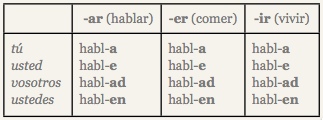I originally wrote this article on 17th September 2011. Back then, I believed that the main purpose of language was communication. Now, ten years later, after ten years of teaching and exploring languages, my vision has changed a lot. In fact, I disagree with what I wrote back then.
So, I had to update this article. The first part is the original. After that, you can read the addendum.
According to Merriam-Webster dictionary, language is:
“a systematic means of communicating ideas or feelings by the use of conventionalized signs, sounds, gestures, or marks having understood meanings”.
There is no doubt that the most common use of language is communicative. We need language whether to have an intimate conversation with our friends or give a speech in front of hundreds of people, but the main purpose is to transmit an idea, a thought, to communicate.
But is it the only one? Certainly not. We use the language for other purposes, too.
Imagine you are in a bar in, let’s say in Tokyo, and you spend an evening talking to your friends. You’re not ‘communicating’. You’re rarely communicating. You’re not presenting them with any information that changes their belief systems. You’re simply engaged in a kind of social play. You’re establishing social relations and creating warm interactions or determining your relationship with someone or whatever. This is the social function. I agree that this could be considered a derivative of communication, but communication and socialising are not always the same thing.
In the same way, you’re not communicating when you are arguing with someone. You’re not listening to what the other person has to say. You’re arguing. You’re just expressing your opinions or your emotions. There is not an exchange of information there, so there is no communication either.
Finally, language has a cognitive function, which means that humans use language to transfer our thoughts in and out of our minds. Have you ever realised that when you think, you do it in a particular language? In my case, I do it in Spanish, but it happened to me that sometimes, I do it in English as well. It is very common when we are living in a country where our mother language is not spoken; we end up thinking of the new language. So, we use language in our inner speeches, and we are not communicating at all.
Language is the blood of the soul into which thoughts run and out of which they grow.
– Oliver Wendell Holmes
Update 8th of April 2021
The purpose of language: Beyond communication

Why did language come about? Was it to solely communicate with other humans?
There are many theories, but one common thread seems to be the idea or need of expressing individuality (i.e. putting the baby down theory), the need for self-expression, and intentional communication.
Baron-Cohen suggests that the Theory of Mind precedes language. The Theory of Mind is about an individual human’s degree of capacity for empathy and understanding of others, that is, the understanding that others have beliefs, desires, intentions, and perspectives different from one’s own.
This means that before language, there was an acknowledgement that the other views the world differently.
Therefore, the purpose of language is two-fold; it’s communication, of course, but it is also self-expression. Language is all about subjectivity and nuance, not about “objective truths” and “neutral language”.
Language is a tool the individual uses to convey reality. The other person can see the world through their own eyes, so to speak, and vice versa.
“We don’t see the things as they are; we see them as we are”
– Anaïs Nin
The purpose of language is to express identity (through our accent, choice of vocabulary, and our mother tongue’s influence…) and subjectivity (through our personal imagery and sensory descriptions) as much as it is to communicate a message. However, it’s not only about communicating the message in the most objective way possible but also about what the message means to me, how I see the message, my intention when sharing the message, etc…
See? We created the language to be able to communicate and connect with other because we realised that someone’s experience of the world, someone’s reality, is not someone else’s experience of the world, someone else’s reality. I think that behind the creation of language was the thought: “I want you to see the world through my eyes, and I want to see the world through yours so that we can get a better understanding of each other and the world”.






